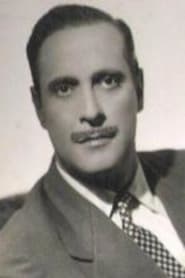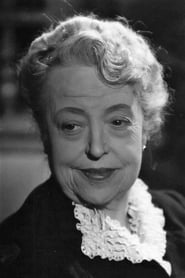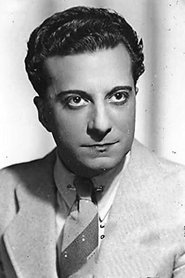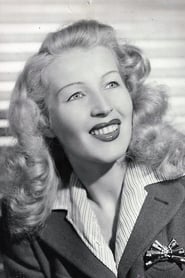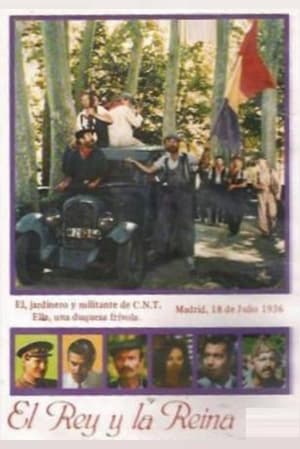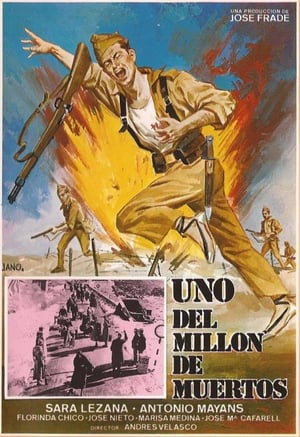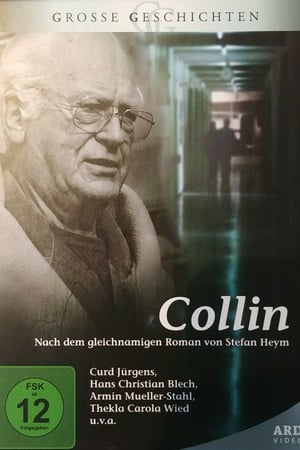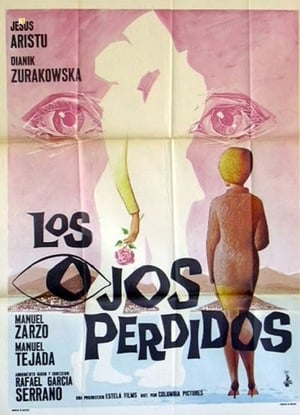

Rostro al mar(1951)
In the final days of the Spanish Civil War, a married couple of Republican refugees goes into hiding in a northern Spanish seaside town. While the wife stays there with their recently born child, the husband continues North to an uncertain future in France.
Movie: Rostro al mar
Top 10 Billed Cast

Rostro al mar
HomePage
Overview
In the final days of the Spanish Civil War, a married couple of Republican refugees goes into hiding in a northern Spanish seaside town. While the wife stays there with their recently born child, the husband continues North to an uncertain future in France.
Release Date
1951-11-29
Average
0
Rating:
0.0 startsTagline
Genres
Languages:
Keywords
Similar Movies
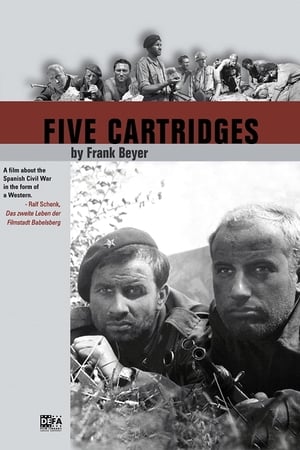 7.6
7.6Five Cartridges(de)
It is the year 1936 and the Spanish Civil War is raging. When the German commander of an international brigade is badly wounded he gives his five comrades a message which he divides up and secretes into in five cartridges. All five shells must reach the battalion in order for the message to be relayed. But Frenchman Pierre can’t bear the heat of the Sierra. When he leaves their hide-out to drink from a well he is hit by an enemy bullet.
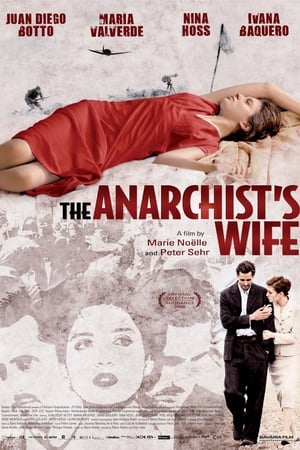 5.6
5.6The Anarchist's Wife(es)
"The Anarchist's Wife" is the story of Manuela who is left behind when her husband Justo fights for his ideals against Franco's Nationalists during the Spanish Civil War. He is deported to a concentration camp, and upon his release, continues the fight against nationalism in the French resistance. Years, pass without a word from him, but his wife never gives up hope of seeing him again.
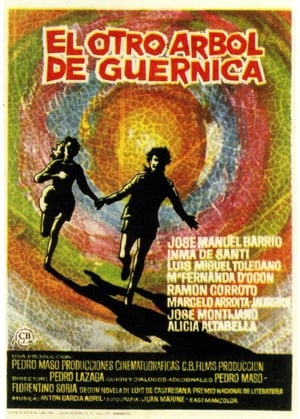 6.3
6.3The Other Tree of Guernica(es)
A group of children evacuated from Spain to Belgium are waiting for the Civil War end which will allow them to go back home.
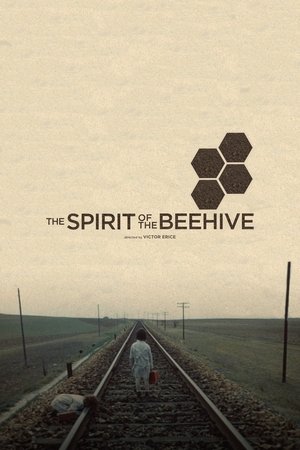 7.6
7.6The Spirit of the Beehive(es)
In 1940, in the immediate aftermath of the Spanish Civil War, a young girl living on the Castilian plain is haunted after attending a screening of James Whale's 1931 film Frankenstein and hearing from her sister that the monster is not dead, instead existing as a spirit inhabiting a nearby barn.
 0.0
0.0The Grass Dwellers(es)
Juan Méndez Bernal leaves his house on the 9th of april of 1936 to fight in the imminent Spanish Civil War. 83 years later, his body is still one of the Grass Dwellers. The only thing that he leaves from those years on the front is a collection of 28 letters in his own writing.
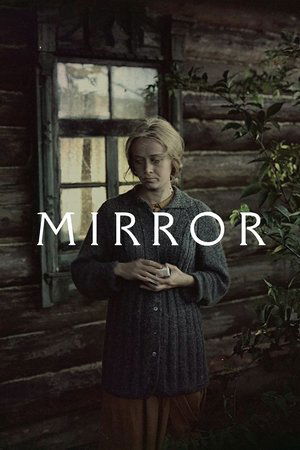 8.0
8.0Mirror(ru)
A dying man in his forties recalls his childhood, his mother, the war and personal moments that tell of and juxtapose pivotal moments in Soviet history with daily life.
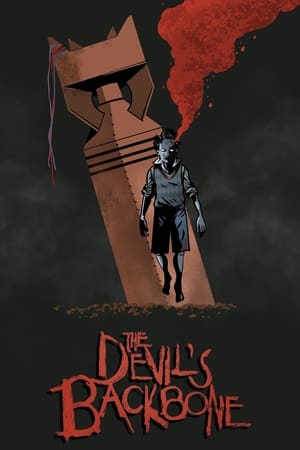 7.3
7.3The Devil's Backbone(es)
Spain, 1939. In the last days of the Spanish Civil War, the young Carlos arrives at the Santa Lucía orphanage, where he will make friends and enemies as he follows the quiet footsteps of a mysterious presence eager for revenge.
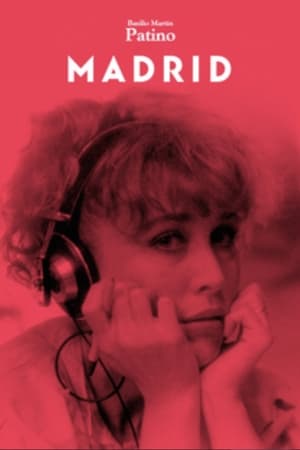 5.8
5.8Madrid(es)
Hans, a German director, is in Madrid to film a television production about the capital and the Civil War, 50 years after it occurred. Accompanied by Lucía, his editor, and Goyo, his cinematographer, he films shots of the modern city, searching for spaces and people related to its past. At the same time, he views materials related to the past. In this search, Hans questions the point of his project, and disagrees with his producers until he discovers a project that he is passionate about.
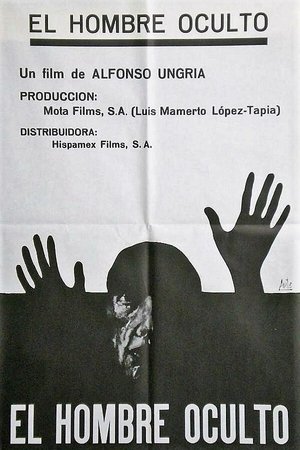 4.8
4.8Man in Hiding(es)
Following the Spanish Civil War, a man goes into hiding to avoid arrest by the victorious Nationalist forces.
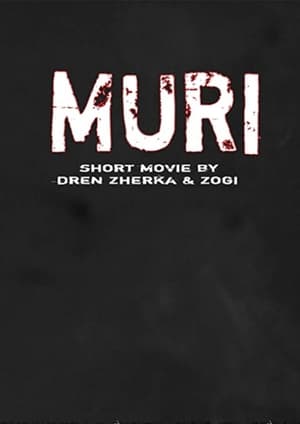 10.0
10.0The Wall(sq)
An adaptation of the J.P. Sartre story "Le Mur". What goes on in his mind and what happens outside when he has left only few more hours left to live. The existential dilemmas of a prisoner condemned to death from a repressive regime for his participation in a resistance movement and his friendship with the leader of this resistance. When all seems lost and he has already given up the most unlikely coincidence changes the course of events and his life.
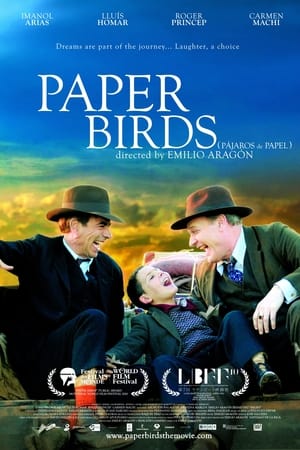 6.6
6.6Paper Birds(es)
At the end of the Spanish Civil War, the members of a group of vaudeville performers have been stripped of everything: all they have left is hunger and the instinct to survive. Day after day, agonizingly, lost and helpless between the victors and the vanquished, the musician Jorge, the ventriloquist Enrique, the couplet singer Rocío and the orphan Miguel search tirelessly for something to eat and a safe place to live.
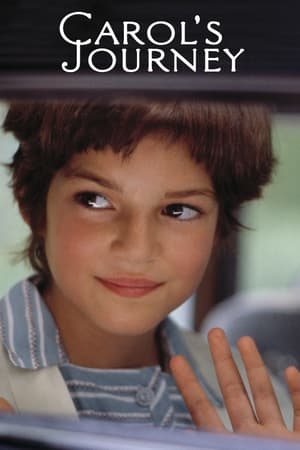 6.5
6.5Carol's Journey(es)
Spain, 1938, during the Spanish Civil War. Carol, a 12-year-old Spanish-American girl, arrives in her mother's hometown and transforms the secretive family environment. Her innocence and rebellious nature drive her at first to reject a world that is at once foreign and completely new.
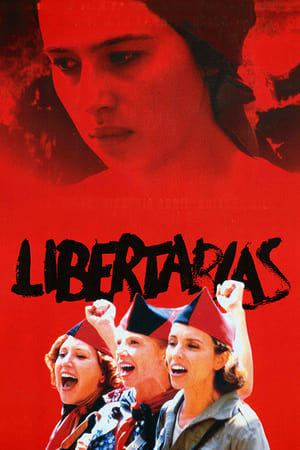 6.4
6.4Freedomfighters(es)
At the outbreak of the Spanish Civil War, the nun Maria is forced to flee her convent. She takes refuge in a brothel, until it is liberated by a woman's anarchist group. Maria joins the group and eventually goes to the front. The women's group faces the problems of fighting not only the nationalists, but also factions on the left seeking to impose a more traditional military structure.
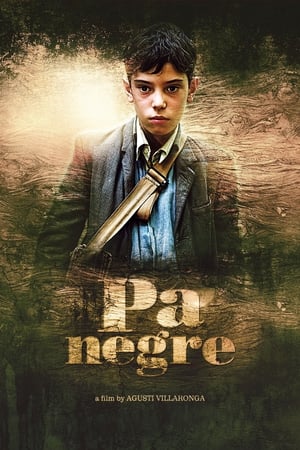 6.7
6.7Black Bread(ca)
In the harsh post-war years' Catalan countryside, Andreu, a child that belongs to the losing side, finds the corpses of a man and his son in the forest. The authorities want his father to be made responsible of the deaths, but Andreu tries to help his father by finding out who truly killed them. In this search, Andreu develops a moral consciousness against a world of adults fed by lies. In order to survive, he betrays his own roots and ends up finding out the monster that lives within him.
 6.6
6.6The 13 Roses(es)
True story of thirteen totally normal young women that suffered harsh questioning and were put in prison under made up charges of helping the rebellion against Franco back in the 1940s. Despite of their innocence, the thirteen were soon executed without even a trace of evidence of any wrong doing.
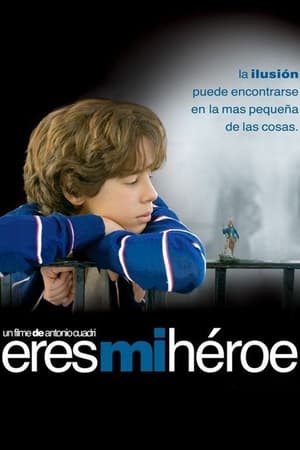 5.5
5.5You're My Hero(es)
Thirteen-year-old Ramon is on the verge of many adolescent discoveries -- and the confusion that goes along with them. Shy and awkward, he's moved from town to town throughout his childhood and believes that life is about winning and losing. But he soon learns it's all about survival. Like Ramon, Spain is in transition (President Francisco Franco is about to die); it's a time of social upheaval marked by change, illusion and struggle.



